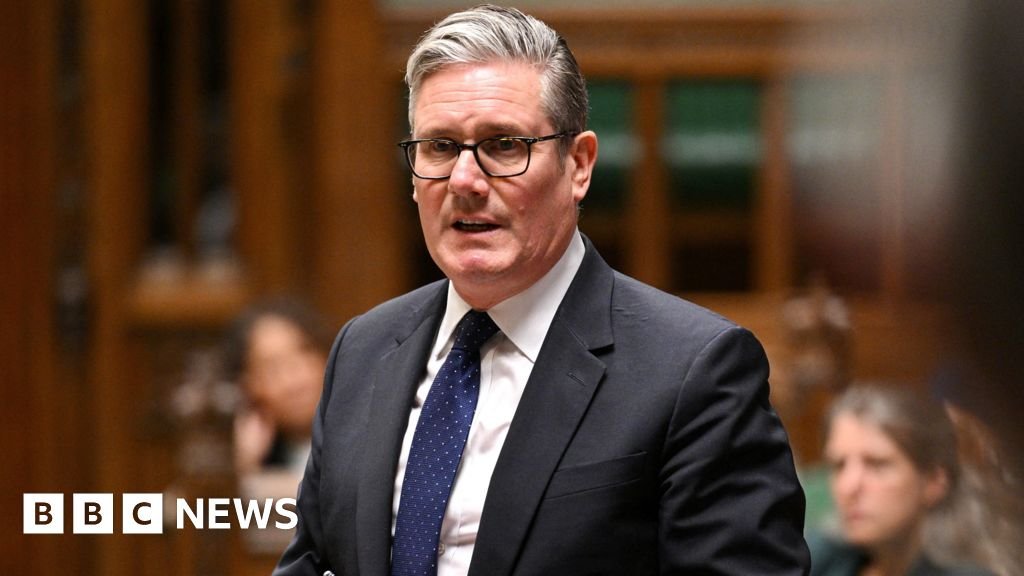UK Government Negotiates Benefit Changes: Concessions on Personal Independence Payment and Universal Credit
As the UK approaches a critical moment in welfare reform, the government is poised to unveil a negotiation deal with Labour dissenters concerning proposed changes to the benefits system. Insiders have disclosed to sources that current recipients of the Personal Independence Payment (PIP) and those receiving the health component of Universal Credit will maintain their existing benefits.
Additionally, there are plans to expedite support services aimed at facilitating employment, aiming for earlier implementation than originally suggested.
These reversals mark a significant retreat from the government, which was facing the credible threat of losing support from more than 100 of its backbench MPs.
Labour leader Sir Keir Starmer has actively sought to consolidate backing from the 120 Labour MPs who backed an amendment to halt the government’s key welfare bill ahead of a parliamentary vote scheduled for Tuesday. Earlier in the House of Commons, Starmer emphasized the need for reform grounded in Labour principles and fairness. He acknowledged that members across all political parties were keen to address the inadequacies of the current welfare system.
The general sentiment among the rebels suggests contentment with the concessions offered, which increases the likelihood the bill will advance. However, some Labour figures, such as Peter Lamb, MP for Crawley, expressed dissatisfaction, declaring the modifications "insufficient" and suggesting the government has overlooked more viable options.
The proposed Universal Credit and Personal Independence Payment Bill aims to redefine eligibility criteria for certain disability and illness benefits. Ministers argue that this legislation is pivotal for a projected £5 billion annual saving by 2030 and is essential for curtailing the rising number of benefit claimants. Chancellor Rachel Reeves previously included these cuts in her Spring Statement as a strategy to align with her economic objectives.
Despite these plans, it remains uncertain how the impending changes will influence the government’s broader fiscal strategy. The Institute for Fiscal Studies (IFS), a prominent think tank, has noted that expenditure on health-related benefits for working-age individuals surged from £36 billion in 2019 to £52 billion in 2024, with projections estimating it could reach £66 billion by 2029 if system changes are not implemented.
Labour MPs have been vocal critics of specific elements in the government’s proposals, especially the requirement for PIP claimants to demonstrate increased need for assistance in daily tasks, from meal preparation to personal hygiene.
The bill’s second reading is set for Tuesday, marking the first vote where MPs can formally support or reject it. Should it pass this phase, the legislation will undergo a brief examination by all MPs the following week, bypassing the lengthy committee review typically reserved for such significant bills.
Notably, this marks the third major policy reversal for the government within a month, further undermining Prime Minister’s credibility. These backpedals follow prior decisions to restore cuts to winter fuel payments and initiate an inquiry into grooming gangs that had previously been resisted.
Critics within the Conservative Party labeled these concessions as yet another instance of the government’s indecisiveness. Shadow Chancellor Mel Stride criticized Starmer for allegedly committing to unfunded financial promises due to pressures from his party.
An anonymous Labour MP involved in coordinating the welfare amendment indicated that the prior concessions regarding winter fuel payments had emboldened many dissenters during the current negotiations. They remarked that MPs are wary of re-encountering the backlash faced for the winter fuel cuts.
These developments illustrate the evolving landscape of British welfare policy and highlight the ongoing challenges faced by the ruling government in navigating dissent from within its ranks, while laboring to address pressing economic and social issues.

